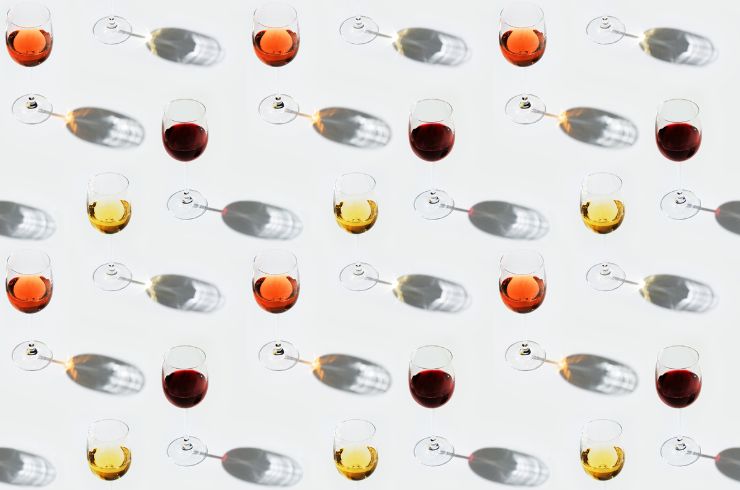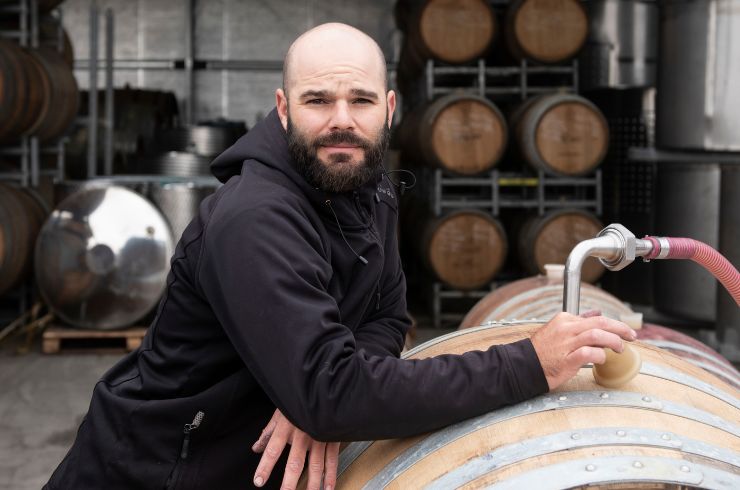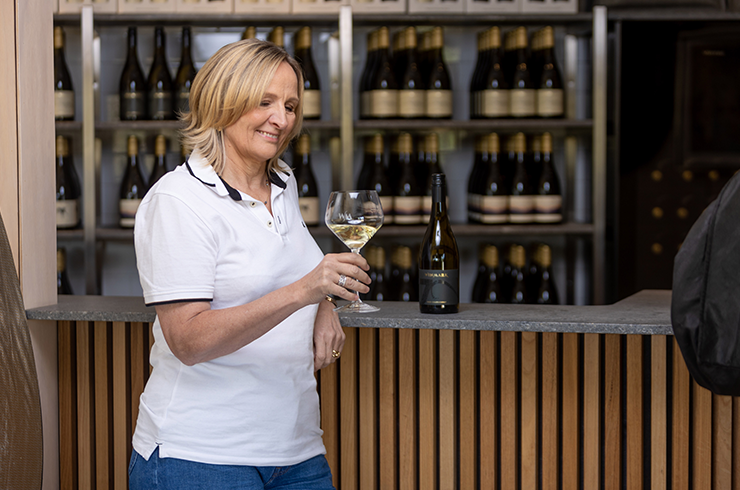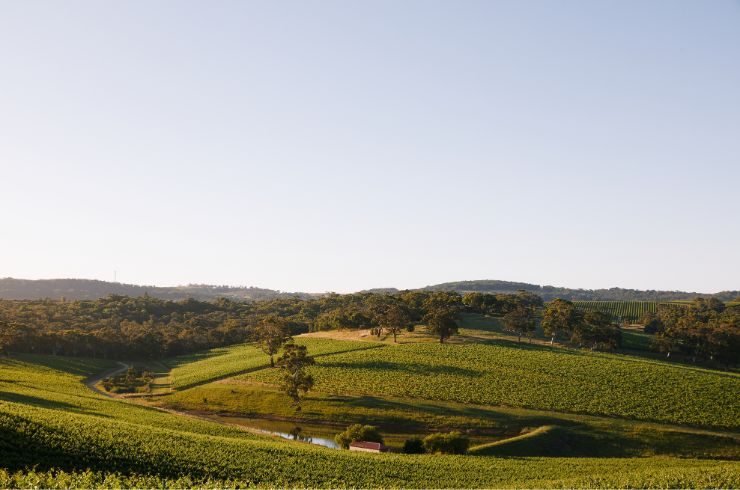- If you’re currently forgoing wine bars to drink by-the-glass at home (or if you just like having options), here are some tips for extending the shelf-life of an open wine bottle.
-
How long does an open bottle last?
The amount of time an open bottle of wine will retain freshness is generally related to the presence of tannin. Tannins, imparted in wines from grape skins during the fermentation process or from wood, bind to oxygen molecules, slowing the rate of oxidation. Simply, the more tannic the wine, the longer it will last once open.
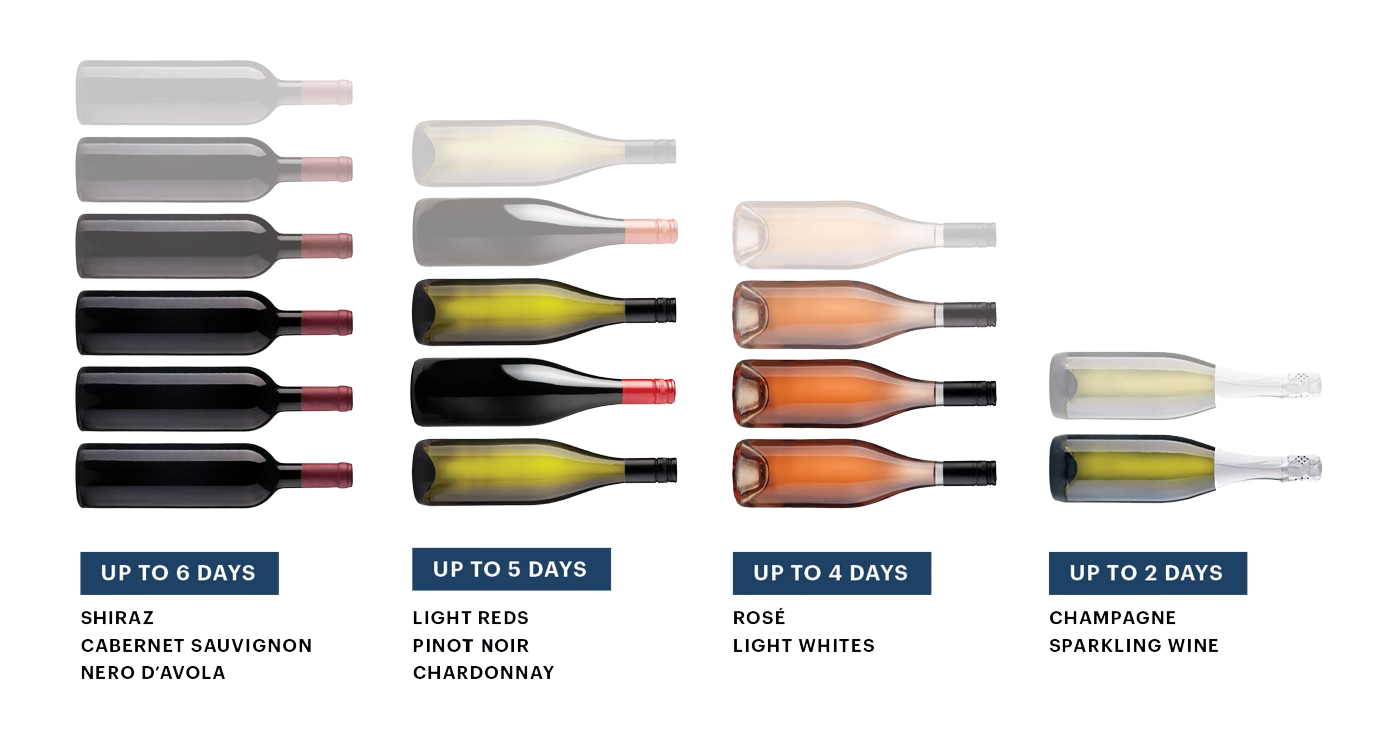
- Higher-tannin varieties, such as shiraz, cabernet sauvignon and nero d’Avola, will last the longest at approximately three to six days after opening.
-
How can you check if a bottle has oxidised?
When you open a bottle, you are immediately effecting a chemical reaction. The wine is exposed to air and therefore, oxygen – which, in the short run, is a good thing. Wine reacting with oxygen can initially release more aromas or help to “soften” a wine, reducing the prominence of its tannins on the palate. -
How can I keep my wine fresh for longer?
- 1. Keep it out of the light Sunlight can increase the heat inside the bottle, causing the oxidation process to accelerate. UV rays can also degrade the wine, so keep open bottles in a dark place.
- 2. Keep it cold The colder your wine is, the slower it will oxidise. So even if your open bottle is a cabernet sauvignon, store it in the fridge after opening to buy yourself an extra day or two.
- 3. Use a hermetic cork Forget an upside-down spoon in your open Champagne bottle – your best bet is to opt for a “hermetic”, or airtight, cork. Trying to force the original cork back into the bottle can lead to all sorts of catastrophes.
- 4. Decant it into a smaller vessel Oxidation is all about how much oxygen comes into contact with the wine. The less oxygen inside the bottle, the slower the process. Having some smaller, half bottles on hand can be great for this purpose – or at a pinch, a mason jar. Just make sure the closure is airtight.
- 5. Don’t open it at all There are some excellent wine preservation systems on the market that extract pre-specified amounts of liquid from any bottle, without breaking its seal. You can find out more here.
Lower tannin, light red wines (like pinot noir) or a full-bodied white wine such as an aged chardonnay may last up to five days.
Light whites and rosé wines will generally be too oxidised after about four days. Champagne or sparkling will be at its best for around a day or two after opening.
Wine contains acetobacter, a bacteria that feeds on oxygen, which can slowly convert it into acetic acid. When a wine has been left open too long and has developed high levels of acetic acid, it starts to smell of vinegar. This vinegar smell is a dead giveaway that your wine has oxidised.
You may also note that a wine’s aromatics and flavours get duller the longer it has been exposed to air. Oxidised wines may also change colour, becoming unusually deep or developing brown hues.
For more top wine tips, cellaring and varietal profiles, check the Wine Companion Resources hub.
